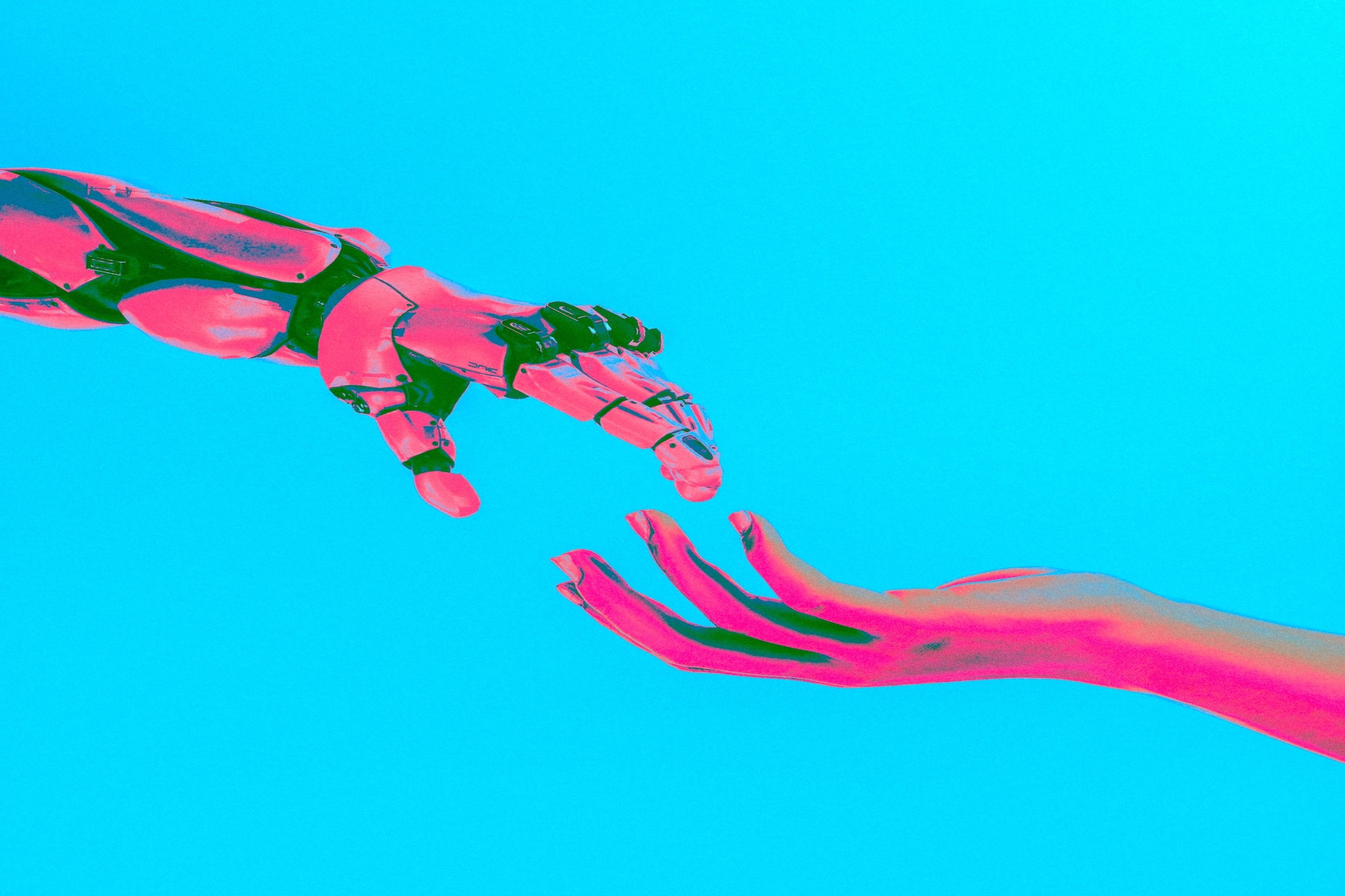Out-of-home advertising (OOH) — also known as outdoor media — is the marketing you see…
AI and Advertising: Will Bots Replace Creatives?
“Simply tell our Artificial Intelligence your Target Audience, the platform you are creating the ads on, it will select the best tone and length for the platform while focusing on your target audience’s pain points—in just 2 minutes!”
This online pitch sounds too good to be true, like an advertisement for a miracle drug. But given the fast pace of technology and evolving demands of the marketplace, the multi-billion-dollar artificial intelligence industry is actually starting to deliver on its promise.
The latest AI products, from ChatGPT to DALLE•E, aren’t just making headlines. They’re making tsunami-sized waves among brand marketers and advertising agencies, revolutionizing the way creatives brainstorm ideas, create content, target consumers, and measure campaign effectiveness.
From Coca-Cola to Heinz and Microsoft, AI technologies are being used to boost engagement and increase conversation rates in advertising, while enhancing — and potentially usurping? — our role industrywide.
A Booming Field
Using data to analyze customer behavior is nothing new. But AI performs that task far more quickly and precisely than traditional, static metrics such as gender, age, and geographic location. In combination with machine learning (ML), AI technologies in advertising can identify target niche audiences, predict future behavior patterns, help determine engagement strategies using methods like contextual advertising, and measure the effectiveness of campaigns. They can even help detect fraud.
Salesforce Research reported that 83% of IT leaders who participated in three 2019 studies said AI and machine learning were transforming customer engagement, and 69% said it was transforming their business. (The company this month launched Einstein GPT, the world’s first generative AI CRM technology.) The report also found four out of five marketing industry experts said AI technology enhanced their work by:
- Automating repetitive tasks
- Analyzing large amounts of data
- Personalizing campaigns to improve consumer engagement
- Predicting conversion rates
- Optimizing email marketing timing
“AI is the foundation for everything we do,” said Greg Chambers, global director of digital innovation for Coca-Cola, “We create intelligent experiences. AI is the kernel that powers that experience.”

The Power of Automation
Brands are using ChatGPT to write headlines, social media posts, and product descriptions, and DALL•E to create images from written descriptions. But they’re pushing AI technologies even further to create personalized experiences and bolster consumer engagement.
Consider:
- Coca-Cola launched Cherry Sprite as a new flavor based on data it had collected from self-service soft drink foundations, where consumers can mix their own ready-made drinks. The company recently announced a generative AI advertising partnership with OpenAI and Bain & Co.
- Heinz fed DALL•E random ketchup-related phrases to create branded images as part of a “Draw Ketchup” campaign. “With AI imagery dominating news and social feeds, we saw a natural opportunity to extend our Draw Ketchup campaign – rooted in the insight that Heinz is synonymous with the word ketchup – to test this theory in the AI space,” said Jacqueline Chao, senior brand manager, brand communications at Heinz.
- Unilever used traditional marketing research and AI-based feedback about breakfast preferences to create a cereal-flavored ice cream: Ben & Jerry’s Fruit Loop and Frosted Flakes. Unilever also uses AI in its recruitment of executives and marketers to streamline the hiring process.
- Nike’s “Nike By You” lifestyle campaign involves the complete AI-driven customization of products, including buyer-designed shoes.
- Microsoft introduced Dynamics 365 Copilot, an AI assistant, for applications that handle sales, marketing and customer service. It can answer queries, help target customers, and write product listings.
- And on a lighter note: In celebration of National Margarita Day in February, tequila brand Patrón launched an AI “dream margarita generator,” which produced images of margaritas based on responses to three prompts—flavor, location, and garnish.

The Unemployment Line
As dramatic as the AI revolution may seem, there’s still no substitute for the imagination, intuition, emotions, and experience of human creatives. To date, AI is unable to generate or align brand voice or personality or evaluate the more subjective aspects of a consumer’s experience.
AI technologies in advertising can’t drive the kind of mission and values agenda that many consumers want, especially the younger generation that connects with authentic brand messaging. Nor can AI replicate (or negotiate) the collaboration between and among clients and creatives that takes place behind the scenes. At least, not yet.
It’s more likely that AI will complement our work, allowing marketers to focus on innovating memorable campaigns. For now, human creatives like those at Curmudgeon Group have the advantage when it comes to:
- Creativity (without algorithms)
- Emotional intelligence
- Sophisticated or complex campaigns
- Strategic thinking and insights
“The vision that everyone shares, but is not yet reality, is that AI will save tons of resources and time,” says Hyun Lee-Miller, VP of media at independent media and measurement agency Good Apple. But still, “[humans] need to dig in to understand ‘the how’ and ‘why’ the results are great.”

Hurdles to Implementation
AI technology faces other obstacles on its path to world domination, even beyond marketing issues. Those include questions of intellectual copyright, privacy and data protection, and unconscious bias in algorithms. Training is also needed for AI-driven initiatives, and data quality needs to be ensured.
Money is a factor, too. AI software can be free, or cost hundreds of thousands of dollars. Custom AI systems can cost between $6,000 to $300,000 or more, including development and rollout. That may keep smaller businesses in the traditional marketing and social media lanes. But for some brands, the AI investment has already paid off:
- Netflix’s AI-curated recommendation watchlist saved an estimated $1 billion annually in subscriptions.
- Best Western’s AI tool Conversations, which offers personalized travel recommendations, resulted in a 48% increase in visits to its hotels.
So, what’s the outlook? Let’s ask ChatGPT.
“Marketing is not just about technology and data,” it says. “It’s also about building relationships and connecting with people on an emotional level. AI can certainly assist in this process, but it cannot completely replace the human touch.”




